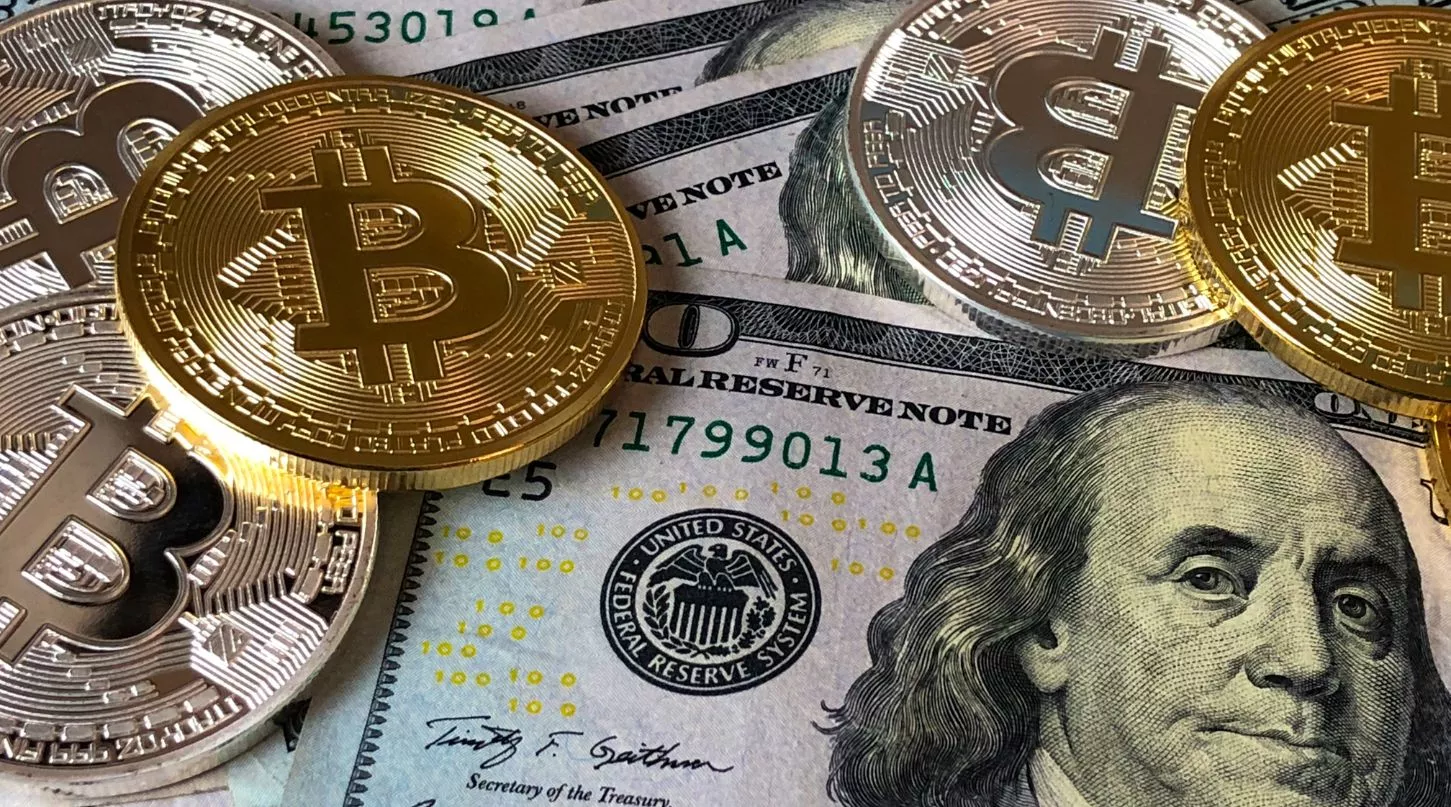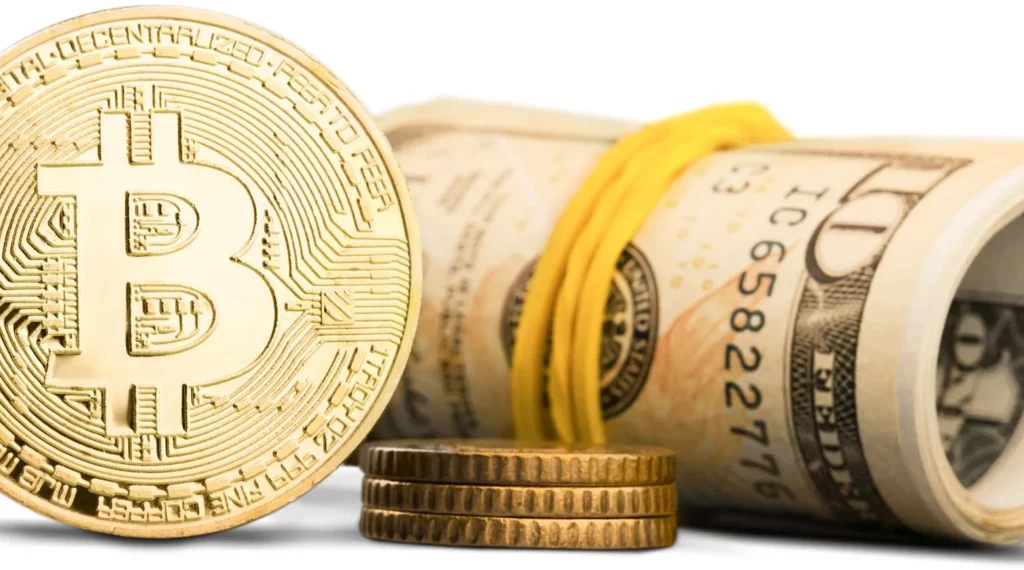The realm of cryptocurrencies is continually evolving, and among the pioneering advancements is Bitcoin Cash. Born from the original Bitcoin, this digital currency is more than just a spin-off; it represents a solution to some of Bitcoin’s limitations. In this comprehensive guide, we will explore what Bitcoin Cash is, its history, key features, and how it has positioned itself in the ever-expanding cryptocurrency landscape.
Table of contents
- What Is Bitcoin Cash?
- When did Bitcoin Cash emerge?
- Key Features of Bitcoin Cash
- How Is Bitcoin Cash Different From Bitcoin?
- Positioning in the Crypto Landscape
- Bitcoin Cash Availability in the Market
- Evaluating Bitcoin Cash’s Success
- Why Is Bitcoin Cash Cheaper Than Bitcoin?
- How Is Bitcoin Cash Different From Bitcoin?
- Where Can You Buy Bitcoin Cash?
- The Future of Bitcoin Cash
What Is Bitcoin Cash?

Bitcoin Cash, often abbreviated as BCH, emerged in 2017 as a cryptocurrency resulting from a hard fork of the original Bitcoin blockchain. In the world of blockchain technology, a hard fork represents a significant and irreconcilable split in the blockchain’s protocol, resulting in two separate and incompatible chains. To adapt to such changes, all nodes and users are required to update to the latest version of the protocol software.
The primary objective behind the creation of Bitcoin Cash was to establish an efficient and cost-effective payment system, akin to Bitcoin’s initial purpose. The key differentiator is its remarkably low transaction fees, which typically amount to less than $0.01. Moreover, Bitcoin Cash boasts significantly faster transaction confirmation times when compared to Bitcoin, typically taking mere seconds for validation.
This digital currency is not a solo endeavor. Bitcoin Cash thrives due to the collaborative efforts of an active community of developers. They regard Bitcoin Cash as a vital alternative to Bitcoin because, in their perspective, Bitcoin has evolved from a simple payment system to an investment instrument. Bitcoin Cash was designed to serve as a peer-to-peer payment system, eliminating the need for regulatory authorities and third parties in financial transactions.
Bitcoin Cash operates on the Bitcoin Cash Node, an ecosystem that empowers users to engage in Bitcoin Cash transactions. This node, essentially the blockchain for Bitcoin Cash, functions as the virtual engine powering the entire network and facilitating seamless transactions.
When did Bitcoin Cash emerge?
Bitcoin Cash (BCH) emerged in 2017 as a direct result of a long-standing debate within the Bitcoin community. The argument revolved around Bitcoin’s scalability – its ability to handle a growing number of transactions efficiently. Bitcoin, in its early years, faced challenges regarding transaction processing speed and fees. The blockchain could only accommodate a limited number of transactions per block, and this constraint led to delays and increased transaction costs.
Two factions emerged in this debate. One supported keeping Bitcoin’s block size at 1MB (the small data units in which transactions are processed), which aimed to maintain the decentralized nature of Bitcoin but potentially limit its scalability. The other faction advocated for increasing the block size, which would enhance transaction processing speed and lower fees but could compromise decentralization.
In August 2017, the community reached a breaking point, and a group of developers and miners decided to proceed with a “hard fork.” This contentious split resulted in two separate cryptocurrencies: Bitcoin (BTC) and Bitcoin Cash (BCH).
Key Features of Bitcoin Cash
Here are the key features of Bitcoin Cash:
- Larger Block Size: Bitcoin Cash increased the block size to 8MB, allowing more transactions to be included in each block. This enhancement significantly improves transaction speed and lowers fees, making BCH more practical for everyday transactions.
- Faster and Cheaper Transactions: With its larger blocks, Bitcoin Cash can process more transactions simultaneously, leading to reduced fees compared to Bitcoin. The increased block size also results in quicker confirmations for BCH transactions. This makes it ideal for point-of-sale transactions, micropayments, and daily use.
- Decentralized Development: Bitcoin Cash operates with no centralized governing body, making it a community-driven project. Improvements and updates are implemented through a consensus mechanism, ensuring a democratic approach to development.
- Security and Reliability: Bitcoin Cash shares the same proof-of-work algorithm as Bitcoin, making it highly secure and resilient. The network is maintained by miners who dedicate computational power to secure the blockchain.
- Enhanced Scalability: Bitcoin Cash’s larger blocks and efficient transaction processing address Bitcoin’s scalability limitations. This makes BCH well-suited for a wide range of applications, from peer-to-peer payments to smart contracts.
- Support for Tokenization: Bitcoin Cash’s blockchain supports the creation of tokens and smart contracts. This flexibility allows developers to build decentralized applications (DApps) and issue tokens on the BCH network.
How Is Bitcoin Cash Different From Bitcoin?
Bitcoin Cash came into existence with a unique approach to address the challenges of limited transaction processing capacity that Bitcoin faced. This cryptocurrency proposed a substantial increase in block sizes, ranging from 8 MB to 32 MB. This expansion allowed Bitcoin Cash to accommodate a higher volume of transactions within each block, significantly surpassing Bitcoin’s capabilities at the time of Bitcoin Cash’s inception. Bitcoin was processing an average of 1,000 to 1,500 transactions per block, making it somewhat congested in terms of transaction efficiency.
A distinguishing characteristic of Bitcoin Cash is its decision not to implement Segregated Witness (SegWit), a solution aimed at optimizing transaction throughput in a block. SegWit essentially separates transaction metadata from the core transaction data, allowing more transactions to be included in a block. In contrast, Bitcoin Cash retains all transaction details within the block without any separation of metadata.
Throughout its history, Bitcoin Cash has consistently ramped up the size of its blocks on the blockchain. In 2018, it augmented its block size to a notable 8MB, marking a significant leap from Bitcoin’s capacity. Notably, in June 2022, Bitcoin Cash once again increased its block size, this time to an impressive 32MB, further reinforcing its commitment to efficient transaction processing.
Positioning in the Crypto Landscape
Bitcoin Cash, often referred to as “digital cash,” is positioned as an alternative to traditional payment systems and an improvement over the original Bitcoin. Its key features make it a suitable choice for various use cases:
- Point-of-Sale Transactions: With faster confirmations and lower fees, Bitcoin Cash is suitable for in-store and online purchases, making it a compelling choice for merchants.
- Peer-to-Peer Transactions: BCH’s original vision as a “peer-to-peer electronic cash system” aligns with its role as a fast and cost-effective way to send funds directly to others.
- Micropayments: The reduced fees make Bitcoin Cash an attractive option for microtransactions, including content monetization, tipping, and small online purchases.
- Tokenization: The BCH blockchain’s ability to support tokens and smart contracts opens doors for various applications, including decentralized finance (DeFi) and token creation.
Bitcoin Cash Availability in the Market
Indeed, Bitcoin Cash (BCH) is still readily available for trading. As of late May 2023, it was in circulation with a supply of slightly over 19.4 million coins. Its position in the cryptocurrency market capitalization rankings placed it at No. 28, with a total market capitalization of approximately $2.2 billion. During that time, its trading value hovered around $114.52 per unit. In comparison, Bitcoin SV (BSV) was ranked 65th, with a market capitalization slightly exceeding $655 million and a trading value of $33.99. It’s noteworthy that both Bitcoin Cash and Bitcoin SV have a similar number of coins in circulation.
Evaluating Bitcoin Cash’s Success
The creators of Bitcoin Cash envisioned a cryptocurrency that would remain permissionless and affordable, with the ultimate goal of becoming the “best money in the world,” as stated on the Bitcoin Cash website. In the short term, Bitcoin Cash has focused on establishing itself as a fast, reliable, low-fee network. It has also aimed to create a professional mining node that actively listens to user feedback and implements measurable improvements.
However, despite Bitcoin Cash’s ambitious objectives, which include larger block sizes and enhanced transaction capacity to promote its use as a payment method, the cryptocurrency has faced a degree of volatility and has not yet achieved widespread consumer adoption.
Why Is Bitcoin Cash Cheaper Than Bitcoin?
As of early June 2023, Bitcoin Cash is notably more affordable than its predecessor, Bitcoin. However, it’s essential to consider that the significantly lower trading volume of Bitcoin Cash is due to its lesser demand in the cryptocurrency market. One of the driving factors behind Bitcoin Cash’s attractiveness is its lower transfer fees, which make transactions more cost-effective for traders compared to Bitcoin. Nevertheless, it’s crucial to remember that the value of both Bitcoin and Bitcoin Cash is inherently tied to public perception.
How Is Bitcoin Cash Different From Bitcoin?
The primary differentiating factor of Bitcoin Cash lies in its design for accommodating more transactions within a single block. This approach was conceived to reduce transaction fees and processing times. Notably, despite the philosophical divergence that led to the hard fork resulting in Bitcoin Cash’s creation, Bitcoin Cash and Bitcoin share several fundamental technical similarities. They both employ the same consensus mechanism and have capped their maximum coin supply at 21 million.
Where Can You Buy Bitcoin Cash?
Most of the major cryptocurrency exchanges provide the option to trade Bitcoin Cash. To get started, you’ll need to set up a trading account on your chosen exchange platform and make an initial deposit to cover your purchase. Bitcoin Cash is accessible through various trading platforms, ensuring users have a range of options when seeking to engage with this digital currency.
The Future of Bitcoin Cash
As the cryptocurrency landscape continues to evolve, Bitcoin Cash remains a strong contender in the digital currency realm. Its focus on scalability, low fees, and decentralization positions it as a viable option for both daily transactions and innovative blockchain applications. The community’s commitment to improving and expanding the BCH ecosystem ensures that it will play a significant role in shaping the future of digital finance.
Bitcoin Cash embodies the spirit of innovation and adaptability that defines the cryptocurrency space. Its journey from a contentious hard fork to becoming a prominent digital currency underscores the ever-changing nature of this financial revolution, where blockchain technology continues to offer new possibilities and solutions.
If you like reading the above article, you may also like reading:
WHAT IS KYBER NETWORK CRYSTAL?







